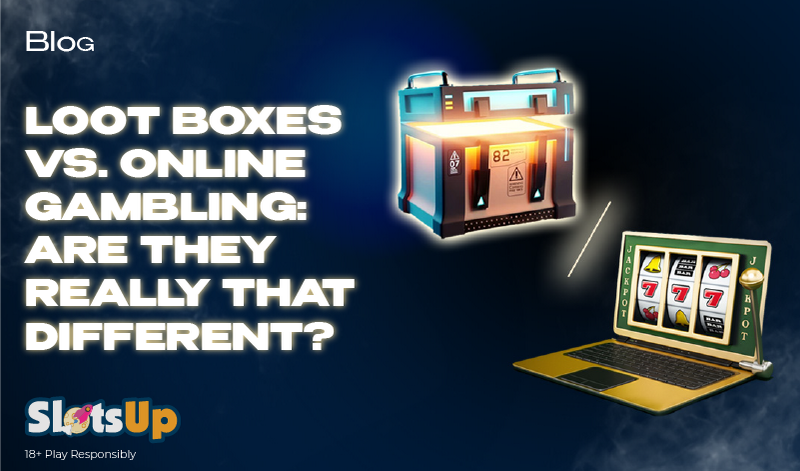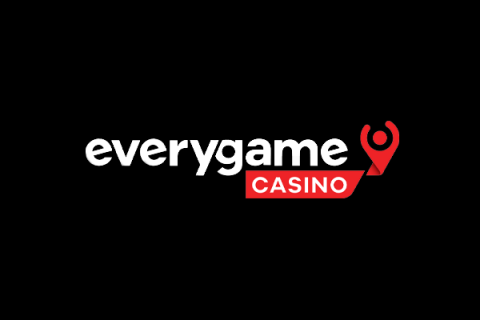
Loot Boxes vs. Online Gambling: Are They Really That Different?
Loot boxes have become increasingly prevalent in video games, with studies showing that the global market for these virtual rewards is estimated to reach $20 billion by 2025. Yet, behind the shiny allure of gambling loot boxes lies a contentious issue that has sparked a heated debate among gamers, regulators, and psychologists alike—their potential connection to gambling behaviors.
Loot boxes, a form of in-game virtual item that players can purchase with real or in-game currency to receive randomized rewards, have stirred controversy over whether they constitute gambling. These rewards often vary from cosmetic enhancements for characters or weapons to game-changing power-ups that can give players an advantage in gameplay.
Critics argue that the randomized nature of loot box rewards, coupled with the element of chance and the potential for addiction, bear striking similarities to gambling mechanics, raising questions about their ethical implications and impact on players’ well-being. This debate around “Are loot boxes gambling” intensifies as concerns mount regarding their resemblance to traditional forms of gambling, particularly online gambling. As the controversy surrounding loot boxes intensifies, it becomes imperative to delve deeper into the debate to understand the true nature of these virtual rewards and their relationship to online gambling.
Exploring the Parallel of Randomized Rewards in Loot Boxes and Online Gambling
Randomized Rewards
Both loot boxes and online gambling share a common denominator in utilizing randomized rewards. In both scenarios, players must invest money in exchange for uncertain outcomes. The thrill of not knowing what lies inside the loot box or behind the virtual slot machine creates an element of excitement and anticipation that can be addictive for some individuals. This is why many critics argue that loot boxes are gambling, as they involve risking money for a chance at receiving valuable items, akin to the uncertainty present in traditional gambling activities. The uncertainty of the rewards fuels the desire to continue spending in hopes of obtaining rare or valuable items, creating a cycle that mirrors the allure of traditional gambling.
Psychological Manipulation
In discussions surrounding the contentious topic of whether loot boxes constitute gambling, proponents often argue that loot boxes are not gambling, emphasizing distinctions in their mechanics and outcomes compared to traditional forms of wagering. However, critics counter that the underlying psychological mechanisms driving engagement and spending in loot boxes and gambling are remarkably similar. For instance, the strategic use of near misses and time-limited offers, which exploit players’ desire for a favorable outcome and fear of missing out, are prevalent tactics employed in both contexts. This convergence underscores the ethical concerns surrounding the industry’s reliance on these manipulative techniques, irrespective of whether loot boxes are legally classified as gambling.
Vulnerability to Addiction
Both loot boxes and online gambling pose a significant risk of addiction, particularly for individuals who may be more susceptible to compulsive behaviors. The continuous reinforcement provided by the occasional rewards in loot boxes and the intermittent wins in online gambling can create a sense of false hope and reinforce compulsive spending tendencies. This intertwining of chance and reward, evident in both loot boxes and online gambling, raises ethical concerns and prompts questions about their impact on vulnerable populations. Consequently, examining the parallels between the mechanics of loot boxes and traditional forms of gambling becomes crucial in understanding the potential risks they pose to individuals’ well-being. So, how are loot boxes gambling? By understanding the psychological mechanisms at play and the similarities they share with gambling activities, we can better address the associated risks and implement appropriate regulations to protect consumers, especially those prone to addiction.
Contrasting the Costs of Loot Boxes and Online Gambling
Reward Structures
A critical differentiation between loot boxes and online gambling lies in their rewards. Loot boxes primarily offer in-game items, cosmetics, or enhancements that enhance the player’s gaming experience but hold no real-world value. On the other hand, online gambling allows players to win real money or tangible prizes, significantly elevating the stakes involved in the activity.
Cost and Availability Factors
When comparing loot boxes and online gambling, accessibility and cost play a significant role in shaping the user experience. Loot boxes are often readily available in video games and can be purchased with in-game currency or real money, with varying degrees of transparency regarding the contents. In contrast, online gambling platforms typically require users to deposit real money to participate, creating a direct monetary investment that may deter some individuals from engaging in the activity.
Regulatory Frameworks
The regulatory landscape surrounding loot boxes and online gambling showcases stark differences in oversight and transparency. While online gambling is subjected to stringent regulatory measures and licensing requirements to ensure fair gameplay and responsible gambling practices, the regulation of loot boxes remains relatively nascent and varies across jurisdictions. The lack of standardized regulations for loot boxes has sparked debates on their potential impact on players, particularly minors, leading to calls for greater transparency and accountability within the gaming industry.
- Diverse Approaches: Across the globe, countries hold varying perspectives on loot box regulation. While some nations label loot boxes gambling, others do not impose such restrictions, creating a complex web of regulatory frameworks.
- Notable Case Studies: Legal challenges and case studies have emerged worldwide, shedding light on the complexities of loot box regulation. For instance, Belgium and the Netherlands have taken a strict stance by outlawing certain types of loot boxes in video games, citing concerns about their similarity to gambling mechanisms and their potential impact on minors. These cases have sparked debates within the gaming industry and prompted discussions about consumer protection.
- Future Scenarios: The future of loot box regulation remains uncertain, with ongoing discussions and legal precedents shaping potential outcomes. One possible scenario is the development of standardized regulations across multiple countries to ensure consistency in addressing loot box issues. Additionally, increased scrutiny and transparency measures may be imposed on game developers to provide clearer information to players about the contents and risks associated with loot boxes. Collaborative efforts between governments, industry stakeholders, and consumer advocacy groups could also lead to establishing guidelines that strike a balance between innovation and consumer protection.
As the debate surrounding loot box regulation continues, policymakers must consider the potential impact on loot boxes and gambling addiction. Given the parallels between the psychological mechanisms driving engagement and spending in both loot boxes and traditional gambling, there is growing concern about the potential for loot boxes to exacerbate addictive behaviors among vulnerable individuals. Therefore, any regulatory framework must address these concerns and implement measures to mitigate the risk of loot boxes contributing to gambling-related harm. By prioritizing the well-being of gamers and promoting a fair and transparent gaming environment, policymakers can work towards fostering a safer and more responsible gaming landscape for all players.
Examining the Impact of Loot Boxes
- Advocacy from Developers and Publishers: Present the viewpoints of game developers and publishers advocating for loot box gambling as a viable revenue model, emphasizing their benefits and necessity for sustaining game development.
- Voices of Players and Regulatory Bodies: Shed light on the apprehensions expressed by players and regulatory bodies regarding the adverse effects of loot boxes, especially on vulnerable demographics like youth, highlighting concerns about addiction and predatory monetization practices.
- Striving for Balanced Solutions: Explore the potential for establishing a compromise in loot box implementation, aiming to integrate responsible gaming principles while still allowing for monetization strategies, fostering an environment where players can enjoy games without facing undue financial or psychological harm. Central to this endeavor is addressing the question: is loot boxes gambling? By carefully evaluating the mechanics and impact of loot boxes on player behavior, regulators can develop guidelines that balance preserving the gaming industry’s revenue streams and safeguarding players from the potential risks associated with gambling-like features. This approach entails promoting transparency in loot box mechanics, implementing age verification measures, and providing resources for players susceptible to gambling addiction. Ultimately, a collaborative effort between industry stakeholders, policymakers, and consumer advocates is essential in shaping a regulatory framework that upholds ethical standards while supporting the sustainability of the gaming ecosystem.
Conclusion
In conclusion, while loot boxes and gambling share similarities in terms of addictive tendencies and potential harm, they differ in their legal status and intended purpose. The ongoing discussions surrounding loot boxes underscore the importance of implementing regulations prioritizing responsible gaming practices to safeguard players, especially vulnerable individuals like youth. Industry stakeholders, regulators, and gamers must continue collaborating to balance ethical standards while preserving the interactive and enjoyable aspects of gaming. By fostering transparency and accountability, the gaming industry can promote a safer and more enjoyable gaming experience for all players.



